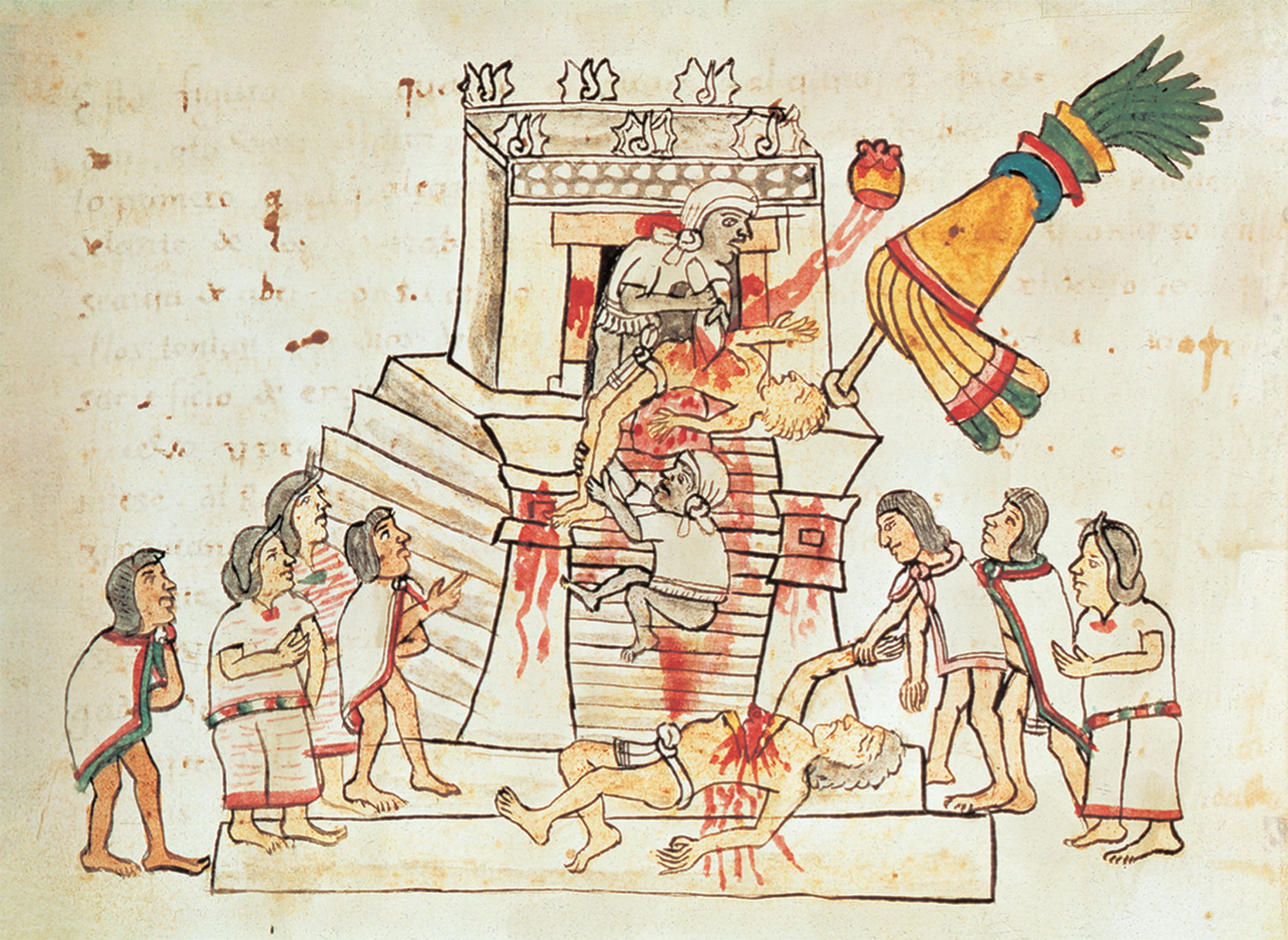The Mexica: A Mesoamerican Culture
The vast majority of the 80 million people who lived in the Western Hemisphere in the 1490s inhabited Mesoamerica and South America, where the population approximately equaled that of Europe. Like their much less numerous counterparts north of the Rio Grande, these people lived in a natural environment of tremendous diversity. Among all these cultures, the Mexica stood out. Their empire stretched from coast to coast across central Mexico, encompassing between 8 million and 25 million people (experts disagree about the total population). Their significance in the history of the New World after 1492 dictates a brief survey of their culture and society.
The Mexica began their rise to prominence about 1325, when small bands settled on a marshy island in Lake Texcoco, the site of the future city of Tenochtitlán, the capital of the Mexican empire. Resourceful, courageous, and cold-
By 1430, the Mexica succeeded in asserting their dominance over their former allies and leading their own military campaigns in an ever-
The empire exemplified the central values of Mexican society. The Mexica worshipped the war god Huitzilopochtli. Warriors held the most exalted positions in the social hierarchy, even above the priests who performed the sacred ceremonies that won Huitzilopochtli’s favor. In the almost constant battles necessary to defend and extend the empire, young Mexican men exhibited the courage and daring that would allow them to rise in the carefully graduated ranks of warriors. The Mexica considered capturing prisoners the ultimate act of bravery. Warriors usually turned over the captives to Mexican priests, who sacrificed them to Huitzilopochtli by cutting out their hearts. The Mexica believed that human sacrifice fed the sun’s craving for blood, which kept the sun aflame and prevented the fatal descent of everlasting darkness and chaos.

The empire contributed far more to Mexican society than victims for sacrifice. At the most basic level, the empire functioned as a military and political system that collected tribute from subject peoples. The Mexica forced conquered tribes to pay tribute in goods, not money. Tribute redistributed to the Mexica was as much as one-
Tribute reflected the fundamental relations of power and wealth that pervaded the Mexican empire. The relatively small nobility of Mexican warriors, supported by a still smaller priesthood, possessed the military and religious power to command the obedience of thousands of non-
On the whole, the Mexica did not interfere much with the internal government of conquered regions. Instead, they usually permitted the traditional ruling elite to stay in power—
REVIEW How did the conquest and creation of an empire exemplify the central values of Mexican society?